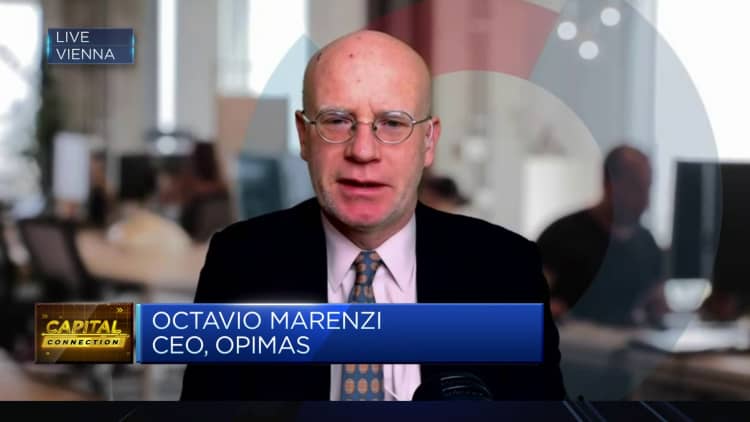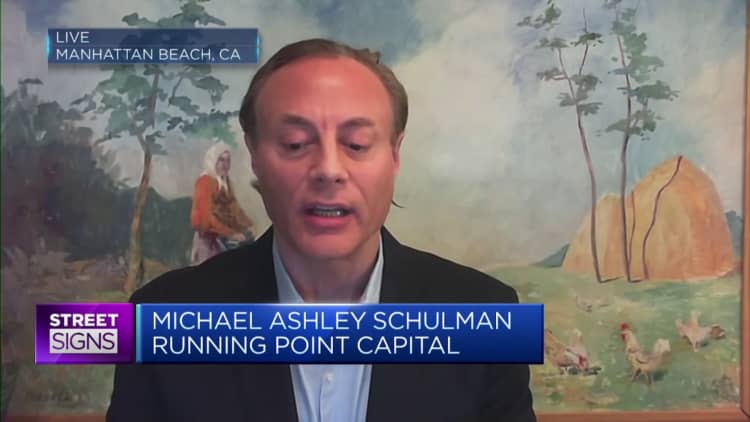[ad_1]
Switzerland, a rustic closely depending on finance for its economic system, is on observe to see its two greatest and best-known banks merge into only one monetary big.
Fabrice Coffrini | Afp | Getty Photographs
The demise of banking big Credit score Suisse despatched shockwaves by means of monetary markets and seems to have dealt a blow to Switzerland’s status for stability, with one government suggesting buyers will now have a look at the mountainous central European nation as “a monetary banana republic.”
UBS, Switzerland’s largest financial institution, agreed on Sunday to purchase its embattled home rival Credit score Suisse for 3 billion Swiss francs ($3.2 billion) as a part of a government-backed, cut-price deal.
Swiss authorities and regulators helped to control the settlement, which got here amid fears of contagion to the worldwide banking system after two smaller U.S. banks collapsed in current weeks.
The rescue deal means Switzerland, a rustic closely depending on finance for its economic system, is on observe to see its two greatest and best-known banks merge into only one monetary big.
“Switzerland’s standing as a monetary centre is shattered,” Octavio Marenzi, CEO of Opimas, mentioned in a analysis notice. “The nation will now be considered as a monetary banana republic.”

“The Credit score Suisse debacle can have critical ramifications for different Swiss monetary establishments. A rustic-wide status with prudent monetary administration, sound regulatory oversight, and, frankly, for being considerably dour and boring concerning investments, has been wiped away,” Marenzi mentioned.
Shares of UBS on Tuesday rose virtually 4% by round 10:15 a.m. London time (6:15 a.m. ET), extending features after closing larger within the earlier session.
Credit score Suisse, in the meantime, was buying and selling 0.6% decrease throughout morning offers after ending Monday’s session down a whopping 55%.
What in regards to the Swiss franc as a protected haven?
“One function of this entire banking strain that we have seen during the last week or two is that truly sure we have seen main volatility in fairness markets, main volatility in fastened earnings markets, and likewise commodity markets, however little or no volatility in international trade markets,” Bob Parker, senior advisor at Worldwide Capital Markets Affiliation, advised CNBC’s “Squawk Field Europe” on Tuesday.
Requested about how buyers would possibly now take into consideration Switzerland’s status for stability, Parker replied, “Once I was in Zurich final week, this topic really was a scorching matter.”

He mentioned there had been “some very modest” weak spot within the Swiss franc towards the euro in current days, noting that that is the foreign money pair the Swiss Nationwide Financial institution focuses on.
One euro was seen buying and selling at 0.9961 Swiss francs on Tuesday morning, weakening from 0.9810 when in comparison with March 14.
“We have moved again near parity on Swiss franc-euro. So, I believe to reply your query, sure, to some extent the Swiss franc as a protected haven foreign money has misplaced a few of its attract. There is no such thing as a doubt about that,” Parker mentioned.
“Will that be regained? Most likely sure, I’d argue that is very a lot form of a short-term impact,” he added.
— CNBC’s Elliot Smith contributed to this report.
[ad_2]
Source link










